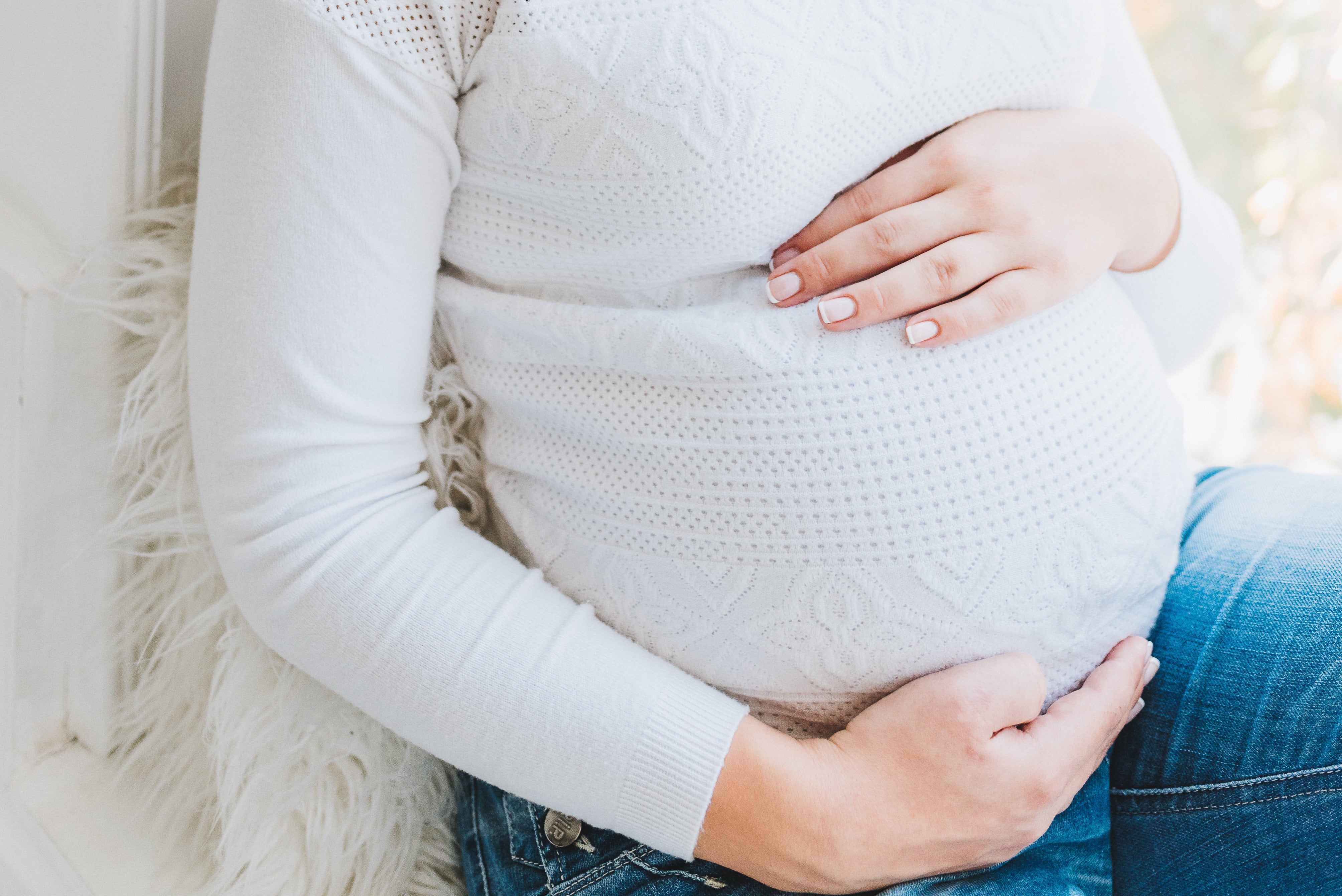Can You Get Pregnant on Your Period? The Facts.

Many people wonder if it's possible to get pregnant during their menstrual cycle. In this guide, we'll explore the question: Can you get pregnant on your period? In this guide, fluxies debunks the myths and help you gain a clear understanding of periods and pregnancy.
Can You Get Pregnant on Your Period?
The short answer is: You're unlikely to get pregnant during your period. Typically, pregnancy occurs when sperm fertilises an egg during ovulation. However, there can be exceptions.
According to the National Health Service (NHS), sperm can survive in the female reproductive tract for up to five days. If you have a shorter menstrual cycle and ovulate soon after your period, it is technically possible to conceive. But, the chances of getting pregnant on your period are very low.
Chances of Getting Pregnant on Your Period
To explore the likelihood of pregnancy during your period, it's important to understand your menstrual cycle. The average menstrual cycle lasts 28 days, but this can vary from person to person.
During your period, the uterine lining sheds, and the body prepares for a new menstrual cycle. This environment is not great for sperm survival, making conception during this time highly unlikely. However, sperm can survive for several days. This means having sex towards the end of your period could increase the chances of pregnancy if you ovulate early.
When Are You Most Fertile?
To increase your chances of getting pregnant, it's important to know when you're most fertile. The time where you have the highest chance of getting pregnant is called the "fertile window". This window usually happens around the time of ovulation, which is about 12-16 days before your next period.
Ovulation is when your ovary releases an egg that can be fertilised by sperm. The timing of ovulation can be influenced by factors like stress, illness, and hormonal changes. There are different ways to track ovulation, such as checking your body temperature or using ovulation predictor kits. Understanding your fertile days can help you plan when to have sex if you want to try to get pregnant.
Signs you are ovulating include:
- Changes in Cervical Mucus: Keep an eye on your cervical mucus, which is the fluid produced by your cervix. As ovulation approaches, you may notice your mucus becomes clearer, slippery, and more like the consistency of raw egg whites.
- Increase in Basal Body Temperature (BBT): Your basal body temperature is your body's temperature at rest. After ovulation, progesterone levels rise, causing a slight increase in BBT. Tracking your BBT daily and noticing a temperature spike can indicate that ovulation has occurred.
- Ovulation Pain: Some people experience mild pelvic pain or twinges on one side of their lower abdomen during ovulation. This happens when the egg is released from the ovary.
- Breast Tenderness: Hormonal fluctuations around ovulation can cause some women to experience breast tenderness or sensitivity.
- Heightened senses: Some women report heightened senses during ovulation, particularly a heightened sense of smell or taste.
- Increased libido: It's not uncommon for women to experience a boost in their sex drive around the time of ovulation.
- Positive Ovulation Predictor Kit (OPK) Result: A positive result on tour predictor kit means the hormone responsible for ovulation has surged. This means ovulation is about to happen.
When to Have Sex to Get Pregnant
Knowing your fertile window is important if you're trying to conceive. The NHS recommends having regular, unprotected sex throughout this fertile period to increase your chances of getting pregnant. Having sex every 2-3 days during this time ensures that sperm is present in the reproductive tract. Doing this will help ensure the sperm is ready to meet the egg once it's released.
Keep in mind that obsessively tracking ovulation or having timed intercourse might lead to unnecessary stress, which can impact conception. It's important to maintain a healthy, relaxed approach to conception.
Can I Get Pregnant After Ovulation?
The fertile window doesn't end immediately after ovulation. While the egg survives for only about 12-24 hours, sperm can still be present in the female reproductive tract. This provides an opportunity for conception even after ovulation has occurred. So, if you had sex after ovulation, you can technically still get pregnant.
Wrapping up
So while it's unlikely to get pregnant on your period, it's not impossible. Understanding your menstrual cycle, tracking ovulation, and being aware of your fertile window are important steps in increasing your chances of conception. Remember to have regular, unprotected sex throughout this fertile period, stay relaxed, and maintain a healthy lifestyle.
Always remember that each person's body is unique, and factors such as age, health, and individual variations can influence fertility. If you have concerns about conception or are experiencing difficulties getting pregnant, consider speaking to a healthcare professional for advice.
- Tags: Myths & Facts Periods



